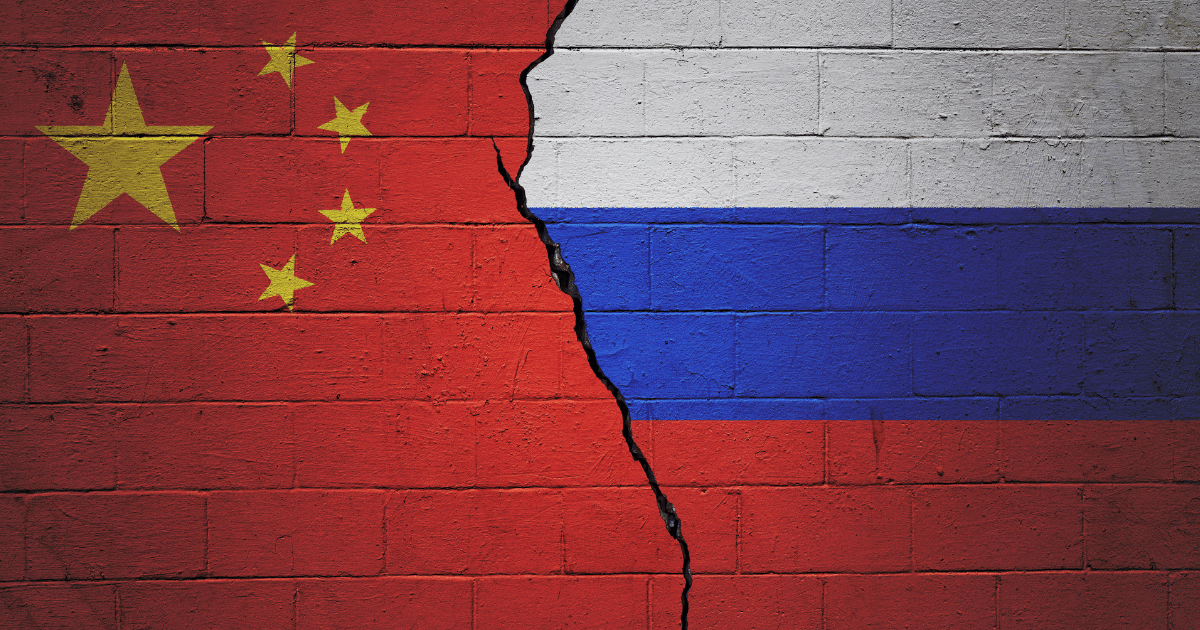More Sanctions On the Horizon for Russia, China?
Both China and Russia may be facing a flurry of new economic sanctions levied on behalf of a Biden administration still in its relative infancy, albeit under a different philosophy than that of previous leadership. With tensions between these world powers rising to new heights during the Trump Administration, many have speculated how the stance of his successor might vary moving forward. While many Americans had been optimistic about foreign policy initiatives under Biden leading into the 2020 election, many have also viewed issues relating to China and international trade as potential areas of weakness, while also questioning the steps the new administration will take to protect American workers in the global market and slow/stop the outsourcing of jobs. While President Biden has gone on record stating that he plans to take a tough stance on China, specifically with respect to its ongoing human rights abuses, intellectual property theft, and unfair trade practices, no traction has been made in this regard to date. This may soon change however. A recent report from Compliance Week published following the company’s recent Financial Crimes Risks, Trends, and Proven Practices virtual conference cites two former financial crime regulators who believe that both American and international companies should be preparing for additional sanctions to be levied against the aforementioned countries in the coming months. Should these reports hold true, it appears the United States will once more attempt to throw its weight and cross-border influence around, using another uptick in economic pressure to potentially affect the policies and practices of these two nations.
One might recall that President Biden’s administration already imposed a slew of sanctions against certain Russian entities and diplomats less than two months into his presidency. In coordination with efforts made by the European Union (EU), the U.S. disciplined seven senior Russian government officials as well as the Federal Penitentiary Service (FSB) in response to a human rights violation involving the poisoning and false imprisonment of Alexei Navalny, a anti-corruption activist and political rival of Russian President Vladimir Putin. The Biden administration had sought to send a message on human rights violations as well as the importance of continuing to work alongside its international allies in leading future efforts to hinder illicit and unethical activities of this variety. State Department spokesperson Ned Price spoke on this growing trend, stating that “When United States and Europe act in conjunction with one another, when we both take steps to impose these costs, those costs will be noticed in Moscow. And it will also be noticed that the international community is standing up to underscore a norm that chemical weapons cannot ever be used, anytime, any place and by anyone.” (CNN).
In February, the U.S. government had also discussed issuing an executive order focused on Russia which would trigger sanctions on the country for multiple assaults on US democracy and American personnel — including the SolarWinds hack and bounties offered by Russian intelligence officers to Taliban fighters to kill U.S. and UK troops in Afghanistan (CNN). Much like Russia, the Chinese government’s authoritarianism has only increased during the pandemic, and political loyalty to the Chinese Communist Party has deepened across the country. The country’s novel National Security Law has been seen as an attack on the freedoms of the country’s citizens, and Chinese authorities have continued to silence human rights defenders and protestors, as well as domestic and international journalists and activism groups attempting to expose the transgressions occurring in the country. Hong Kong has also done little to address the mistreatment of Muslims who continue to be placed in internment camps throughout Xinjiang and subjected to forced labor and political indoctrination. President Trump had already implemented a plethora of sanctions against Communist Chinese military companies, and further additions are expected to come about under Biden.
Charlie Steele, the former chief counsel for the Office of Foreign Assets Control (OFAC), recently warned that companies should be prepared for more sanctions on the horizon with respect to both Russian and China. However these measures are expected to come to fruition in a less “spur of the moment” variety than they had over the past four years. Early reports have indicated that there will be greater deliberation by OFAC and others in the Biden administration to determine when and where to levy sanctions moving forward, a stark contrast to previous sanctions initiatives (CW). Steele also believe that sanctions are only one part of a greater campaign to put pressure on China, Russia and others moving forward. “I think we can expect to see broad use of government tools on cyber-issues—not just sanctions, but AML and others as well,” Steele said (CW). Financial institutions would be wise to take a proactive approach to monitoring sanctions and stay up to date as possible on potential changes to foreign policy, especially when it comes to updates to OFAC and other sanctions lists. With additional policy changes more than likely on the horizon, compliance departments of financial institutions small and large need to be at the ready.
Citations
Hansler, Jennifer. “Biden Administration Unveils Raft of Sanctions on Russia over Navalny Poisoning and Imprisonment.” CNN, Cable News Network, 3 Mar. 2021.
Nicodemus, Aaron. “China, Russia to Face More Sanctions under Biden, Experts Say.” Compliance Week, 30 Mar. 2021.

